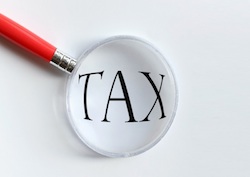 VAT and its relationship to commercial property can be a complex issue, but good advice and proper planning can make it work efficiently for a business. When it comes to property ownership, it is important to ensure that the VAT attributed to a transaction is correct.
VAT and its relationship to commercial property can be a complex issue, but good advice and proper planning can make it work efficiently for a business. When it comes to property ownership, it is important to ensure that the VAT attributed to a transaction is correct.
VAT - The Basics
For commercial property, VAT is either standard rated (20%) or exempt. The difference between the two is significant.
When a property transaction is charged at 20%, you have to charge VAT in addition to the price. You are entitled to recover VAT on costs, including property purchase, refurbishment, and legal fees, etc.
In contrast, where a transaction is VAT exempt, it means you do not charge VAT. It also means that you cannot claim VAT in relation to that transaction. For example, where a landlord rents a property out and it is exempt, he cannot recover VAT on legal fees, repairs, etc.
Most property transactions (letting or selling) are by default exempt. The only exceptions are the sale of a part-completed property, and a property that is less than three years old, both of which are standard rated.
Opting to Tax
However, a vendor or landlord can "Opt to Tax". This means that a letting or sale, which would otherwise be exempt becomes standard rated. You should ALWAYS seek professional advice before opting to tax, because it is not easily reversed. In most cases, it cannot be revoked for 20 years.
An Option to Tax has to be notified to H M Revenue & Customs. There are standard forms on the HMRC website for this.
There are two reasons to opt to tax:
Opting to Tax is not transferable. So, where a landlord opts to tax, a sub-landlord is not obliged to do so. He has to make his own decision. Also, where a vendor opts to tax, the purchaser is not obliged to do so. Again, he has to make his own decision.
Paperwork
It is important to ensure you have complete and accurate paperwork when dealing with any property transaction. Buying, letting, selling, etc. all require legally-drafted contracts. These generally make some reference to VAT. Make sure that the VAT statements are correct.
A Solicitor will ask a set of Standard Enquiries, including a series of questions regarding VAT. These must be answered accurately and the resulting contract must reflect those answers. Do check that is done.
New Business – some simple tips
Where a new business wants to purchase a property for its business activity, it is likely to incur significant VAT. Register for VAT as early as possible. Apply for monthly VAT Returns (instead of quarterly) to help cash flow. Submit returns promptly, so that any payment due to you is received quicker and make sure you have invoices for your expenditure.
Can I claim VAT?
The answer depends on what you are going to do in/with the property. Where you are going to run a ‘taxable’ business, then you can claim the VAT. This includes an office, an industrial unit, and a retail unit. Basically, if you are charging VAT on your business activity, then you can claim VAT on property costs. In this situation, you DO NOT need to Opt to Tax.
You can claim VAT on:
You can claim VAT on capital items and on profit and loss items. Do note that VAT rules are not the same as Direct Tax (Income Tax, Corporation Tax) rules.
Change of Use
If you change what you are doing with the property, always ask: "Might this have any VAT implications?" In the worst case, VAT originally claimed on the purchase of a property may have to be repaid. That applies equally to a change of use of only part of the property.
Mixed Use Developments
This is a highly complex area and one that merits a separate article. A person involved in a mixed use development (both commercial and residential units) is likely to have complex VAT issues to deal with, applying both to the cost side and the income side.
About the author
 Les Howard is a freelance VAT Consultant, with over 20 years’ experience in the private sector.
Les Howard is a freelance VAT Consultant, with over 20 years’ experience in the private sector.
February property articles from leading experts in the commercial property sector
Have you any commercial property events you'd like to tell us about? It could be networking, exhibitions, seminars, industry lunches or sporting fixtures. We will list them for free. Just email newsdesk@propnews.co.uk with the following details: Event name, date, time, venue, cost, booking info and a brief description of the event.
To list your property job vacancies on Property News. Email: richenda@propnews.co.uk.